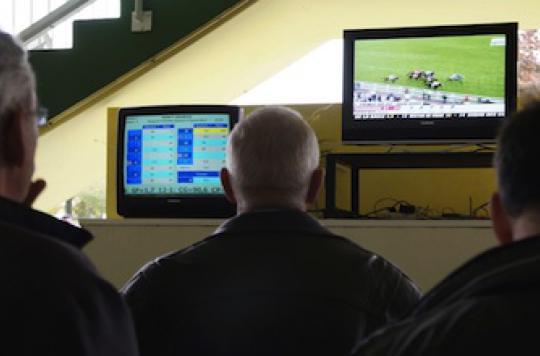By opening a site for compulsive gamblers, Inpes is trying to listen to people who are suffering. For their part, doctors help them control their emotions.

“It’s been 2 years since I learned that my daughter was playing. (…) As soon as she can, she plays. It is more than 10,000 € played for 2 years. She has no limit because since I keep her credit card, (…) she stole money from me. Do you think there is a way out because here I am at the end of the line ”.
Posted by a user under a pseudonym, this testimony is the first call for help received on players-infos-service.fr. Like its cousins tabac-info-service.fr and alcoolinfoservice.fr, this website dedicated to the prevention of risks associated with gambling is managed and funded by the National Institute for Prevention and Education for Health ( Inpes). It completes the telephone line put into service at the same time as the liberalization of online gambling, in 2010.
There are tips for setting limits, managing money problems, or helping loved ones. The site is aimed at both players and their families, often powerless in the face of this phenomenon.
If pathological gamblers are rather rare (the Inpes estimates them at 200,000, or 0.4% of bettors), the disorders from which they suffer very serious. Debt, social disengagement, depression are commonplace, and can lead to fatal consequences: it is estimated that 10% of people who commit suicide have problems related to gambling. But how do we get out of this dangerous spiral?
Several approaches are possible. Among them, cognitive behavioral therapies (TCC) have already demonstrated their effectiveness. “They are based on the work of educating the players, to rid them of their illusions. The latter are in fact often persuaded to exercise a certain control over chance, which is obviously false, ”explains Marc Valleur, psychiatrist and director of the Marmottan hospital in Paris. CBTs also allow them to better manage their emotions, which overwhelm them when they are playing: by controlling them, the players thus avoid losing all rational sense.
To understand addiction in its entirety, doctors often offer other complementary approaches, such as participation in support groups, social support, or even treatment with drugs, such as naltrexone, an inhibitor of brain reward circuits used in alcoholics.
Despite these therapies, gambling addictions remain difficult to cure. First, because “the patient sees his gambling addiction as a vice, and he is reluctant to talk about it”, warns the specialist. A difficulty which should be reduced thanks to listening structures such as players-info-service. The other pitfall is that there is no such thing as a typical dependent player profile. “Some are impulsive and seek pleasure in the game. Others, on the contrary, play to escape suffering and forget their problems: we cannot help them in the same way”, adds the specialist.
But the most important constraint is undoubtedly the money that is lacking to develop care structures. “We are sorely lacking in the means to set up a real healthcare network. The 2010 law provided for its financing, but we are still waiting for the money, ”sighs Marc Valleur.
.















